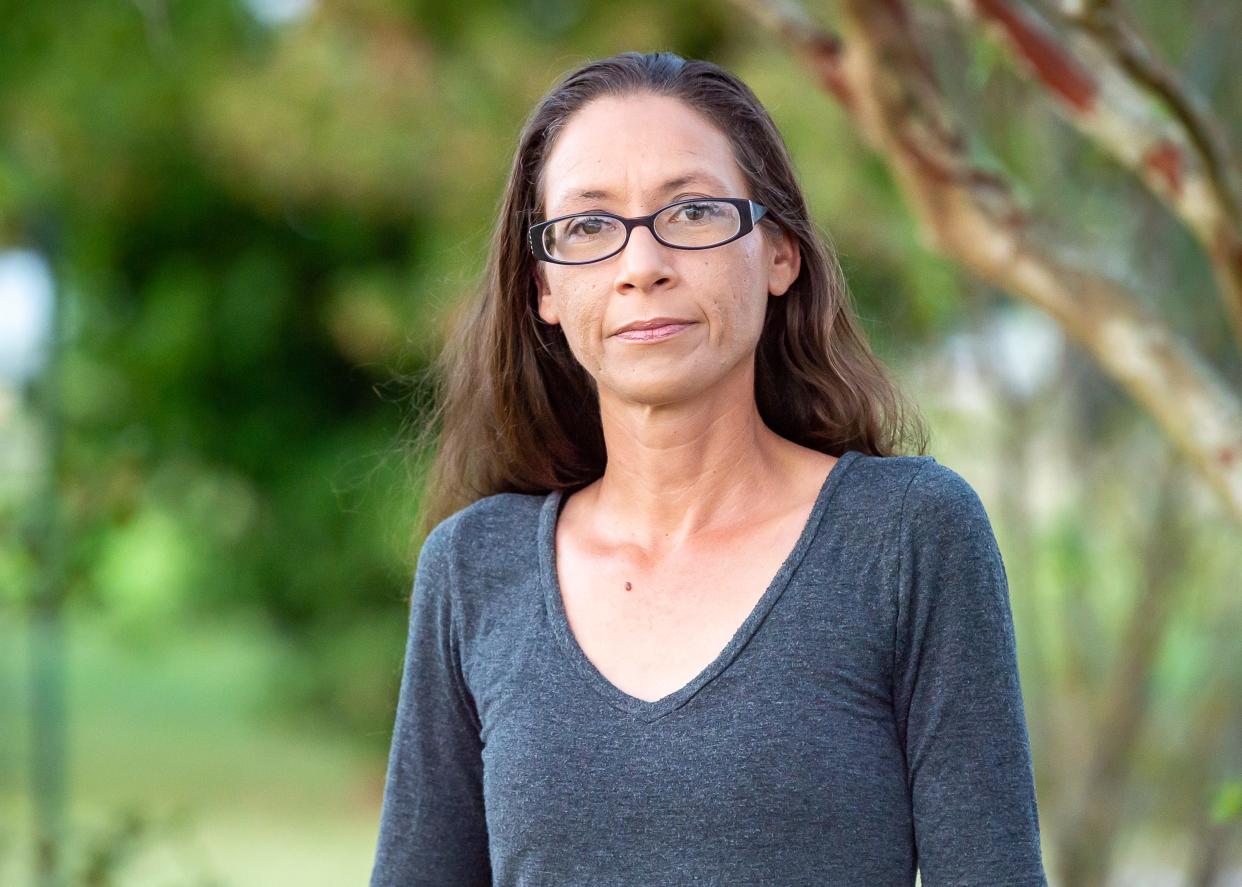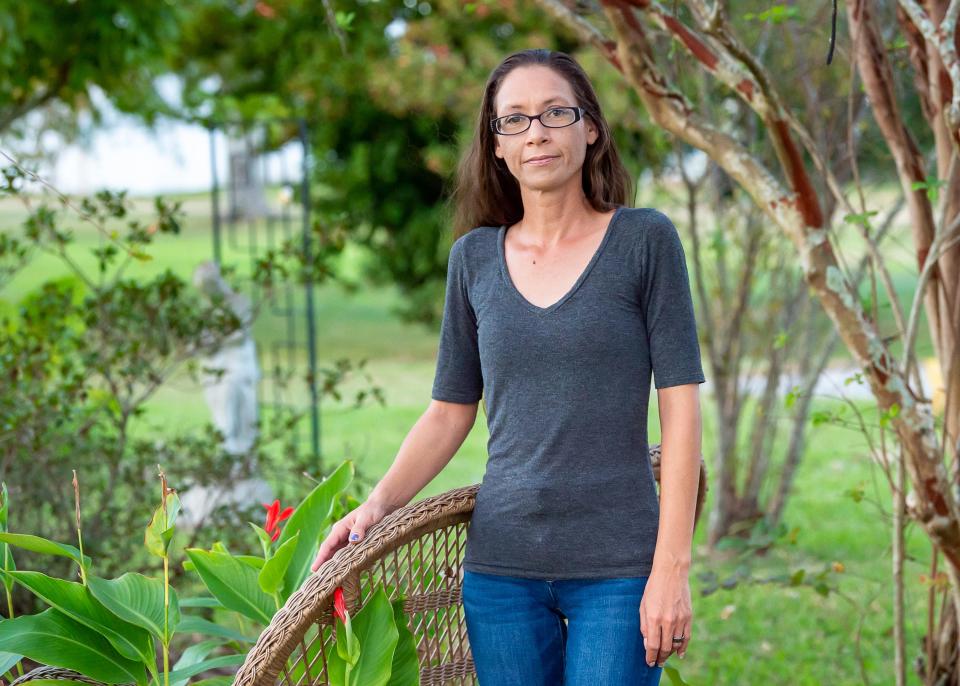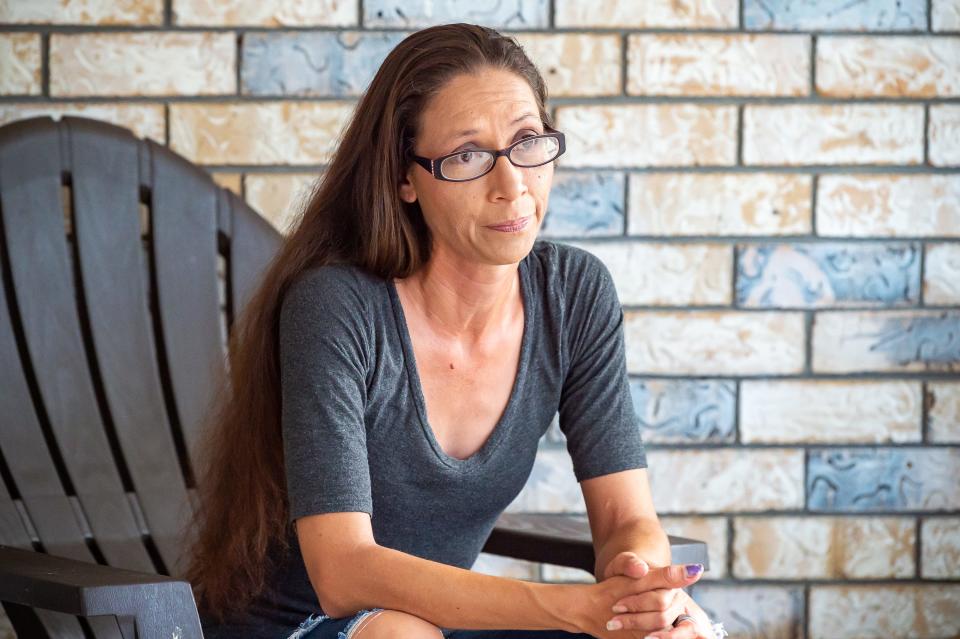How Shirell Parfait-Dardar advocates for her Native American tribe and heals the earth

Shirell Parfait-Dardar is one of USA TODAY’s Women of the Year, a recognition of women who have made a significant impact in their communities and across the country. The program launched in 2022 as a continuation of Women of the Century, which commemorated the 100th anniversary of women gaining the right to vote. Meet this year’s honorees at womenoftheyear.usatoday.com.
Shirell Parfait-Dardar is an Elder Chief of the Grand Caillou-Dulac Band of Biloxi-Chitimacha-Choctaw. Her Native American name, Traitor' de Terre, means Healer of the Earth and it’s a task that she’s taken to heart.
Her tribe's historical land encompasses the southern Louisiana communities of Grand Caillou, Dulac, Petit Caillou, parts of Bourg and Houma along with Chauvin, where category 4 Hurricane Ida came ashore in 2021.
Parfait-Dardar has led efforts to help her community recover from the impact, mitigate the continuing impacts of climate change, and gain federal recognition for her tribe so it is better able to access resources like grants, healthcare and education.
Climate change and the effects of a warming planet are directly felt along Louisiana's southern coast, where tribal residents are being forced to relocate.
The island was vanishing beneath its residents’ feet.
State, local, and federal governments partnered with local organizations to relocate residents to Schriever, in Terrebonne Parish. Some of the first residents moved into their new homes in August, but Parfait-Dardar said she is unhappy with how aspects of the process were carried out.
For the past 26 years, her tribe has pushed for official recognition from the U.S. government. About 900 members of the Grand Caillou-Dulac Band of Biloxi-Chitimacha-Choctaw tribe reside in Terrebonne Parish, where external factors like storms erode not only the landscape but also the population. Before Hurricane Ida, about 200 more members of the tribe lived there. Recognition would make the many other causes she has championed much easier. Parfait-Dardar has traveled to Washington, D.C., and testified before Congress on behalf of her people.
This conversation has been edited for length and clarity.
During the aftermath of Hurricane Ida, you helped organize groups to help people recover. What was that like?
It was a blur, in a sense. I do remember some things. We had just lost our own home. And we were fortunate to be able to stay with my mom in Thibodaux for a little bit. But I mean, that's two hours every day, traveling back and forth.
And that cuts time out. Plus, you know, you need to be home where you can start the work that you have to do to try to start picking up the pieces. And then on top of that, I needed to be with our people. Because that's what we do.
We had people sleeping in cars, and children, and they didn't have anywhere to go. I just wanted to do what I could to help.
Most of the time, we had no cell phone service. Electricity was out, and people were without water. Thankfully, we were able to set up a location here in Chauvin at the American Legion, to start bringing in some supplies and things like that, you know, for people that were in need.
We were able to assist 64 families in getting back into their homes on our own, and we're still working with families today.
What are some of the hurdles that you've encountered?
In this entire process, I definitely realized that my education is nowhere near the education of today. OK? It's just not. And you have to understand, my parents were not allowed to go past the eighth grade. They had to go through all of the segregation and things like that. So they weren't allowed to have a full 12th-grade education. And we're still dealing with a lot of challenges from that.
It's been a learning process ever since. We actually had to go and take courses to know how to be case managers to help people that have to navigate these different application processes.
Everything's digital today, and we still have many people that are not familiar with those types of technology – especially our elders – so a lot of the problems that we found were, we have all of these different systems that you need to go through to be able to access the resources you need; however, nobody was afforded the education to know how to access them.
And there were lots of limitations. They didn't have access to the internet, or electricity, I mean, they didn't even have a home.

Where are you in the process of federal recognition of your tribe?
We've been in the federal acknowledgment process for over 26 years now. And we've had to do so much extensive research for that, because you have to trace every single person back to their historical tribe with documentation. And not just any documentation. They want hard evidence like certificates, birth records, court records, you know, anything, that would be considered hard evidence, which we have, right?
Well, back in 1996, a lot of those things were submitted. And we receive what's known as a proposed finding, based on the evidence, however, we didn't meet all of the criteria at that moment. Nobody ever does. Well, we got that, that finding came back in 2008. It took them that long to go through the evidence that we submitted. And basically, what came back was that we met four out of the seven criteria.
The one thing that we had not fully proven, was our connection to the historical tribes that we were claiming, however, we were able to prove one of our ancestors in his family's historical tribe, which was the Biloxi. So now we have the evidence that also proves that he was also a Choctaw.
Why is this recognition so important?
Unfortunately, for Indigenous peoples, unless we go through the recognition process and gain federal acknowledgment, we cannot directly access federal resources, or even manage those resources on our own. And we need access to so many resources, from education to health care, to economic development and infrastructure. You know, we need to be able to protect and preserve our lands and our waters and our sacred spaces.
How does it protect your lands?
We would be able to sit at the table with them when the Army Corps of Engineers is making decisions about what's going to happen when they want to do things like create levees.
Are you happy with how the resettlement away from hurricane-vulnerable areas is going?
Absolutely not. Community resettlement needs to be community-led and community-driven.
They were labeled as stakeholders, not community residents, which is what they were. And the fact that they were not federally acknowledged, was used against them. Which made it easy for different departments and agencies to say, 'Oh, well, you can't manage this, because you're not federal.'

What projects are you working on now?
So we've been actively working for several years now for canal backfilling: basically filling in the abandoned canals that have been left behind. Quite frankly, we don't have time to wait. We are losing land, way too quickly along with it. We're losing our lifeways, our estuaries and everything.
So we took it upon ourselves to do what we could to try to heal as much of the land as we could. And it's been slow. We have to rely on grant proposals. Fortunately, we were able to get two that allowed us to do a lot of the planning and going out and mapping and choosing which canals were, you know, looked like they would be potentially successful.
Now we're pursuing the funding to actually be able to implement and fill those canals in. It was a slow process because I mean, look, this is new for us. It's not that it's a new concept. It's been done before in the Louisiana area, highly successful. But for us trying to tackle this and pushing forward on our own, it was challenging because we're limited by which types of funding we can access and how we can access those funds.
What have you learned from your time as chief?
I think what I've learned the most out of all of it, is that we haven't been very good ancestors.
Most of us are here, living our experience, doing our day-to-day. And we've gotten into this habit of consuming, like this idea that everything is just available when there's no responsibility there.
We've been descendants with no problem moving forward, but we haven't really taken on the responsibility of becoming good ancestors, by protecting and preserving.
Our resources are finite, and unless we protect and preserve our future generations won't have a future.
2022 Women of the Year: Meet Chantelle Gary, the Louisiana honoree for USA TODAY’s Women of the Year
Women of the Century: Politicians, civil rights activists and ‘Queen of Creole Cuisine’ among Louisiana’s inspiring women
This article originally appeared on The Courier: Louisiana Native American chief honored by USA TODAY Women of the Year

